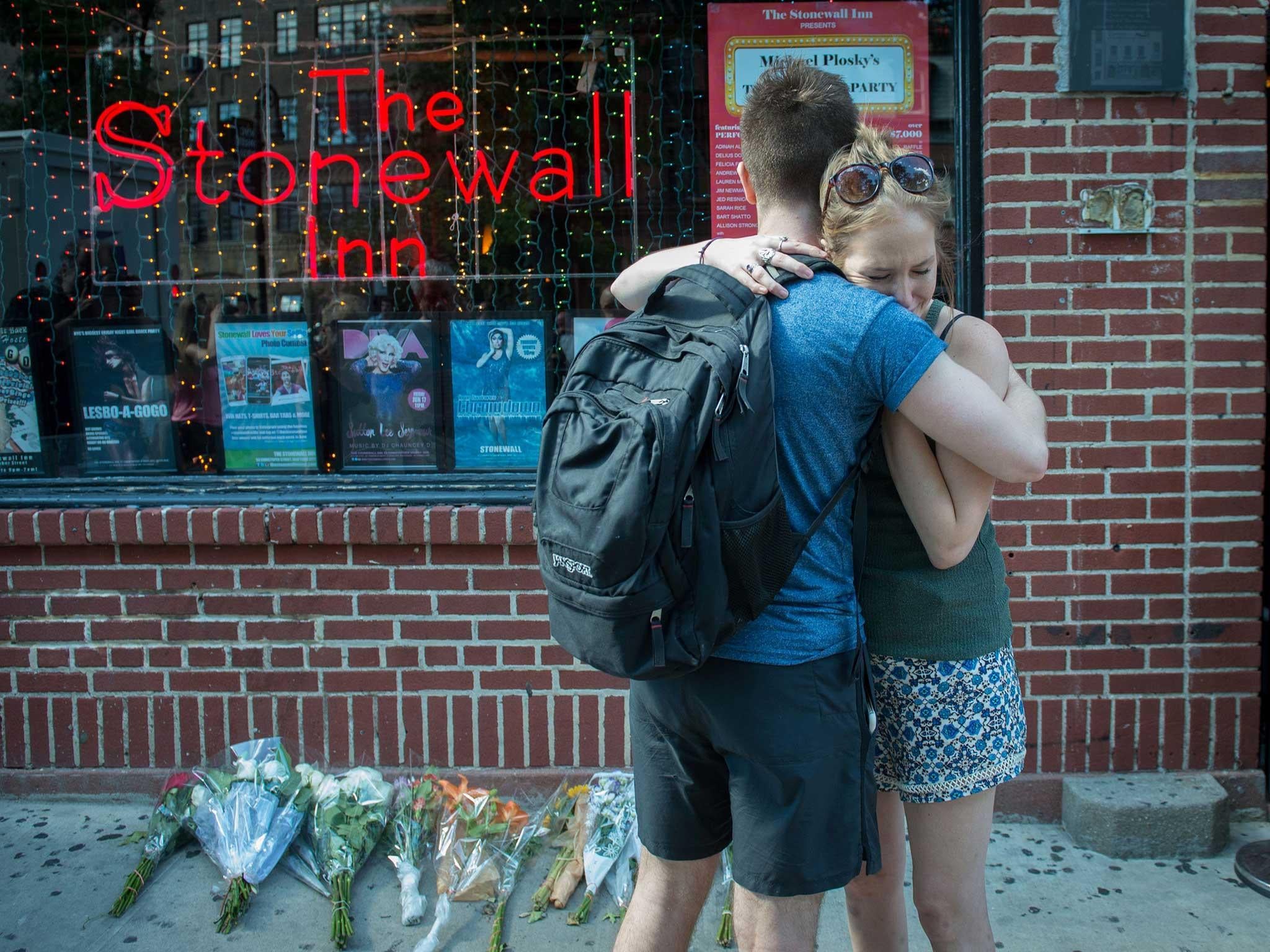Call the Orlando shooting what it was: a homophobic hate crime, not 'an attack on us all'
We don’t go to 'gay clubs' like Pulse to feel gay, have gay conversations, drink gay drinks and dance gay dances - lots of us go to gay clubs to try and forget that we’re gay

It’s often put to me, by well-meaning friends, that the idea of a “gay bar” or a “gay nightclub” or, well, a “gay” anything in the context of modern Britain verges on the anachronistic, a remnant of a lesser-informed, bygone era that has since given way to a panacea of gay acceptance, gender fluidity, education and general all round loveliness.
While such optimism is of course welcome, to an extent, I do always try to explain that really things aren’t quite that clear-cut, and LGBT spaces - such as Pulse in Orlando, the scene of this weekend’s shootings - are still quite simply crucial. In the words of the incredible Owen Jones last night before storming out of a Sky News interview, if you think that sounds ridiculous then maybe “you don’t understand this because you’re not gay”.
Really, it should be straightforward. We live in a world where if two men get married, it’s a “gay wedding”; if two women kiss it’s a “gay kiss”; our human rights to live equally alongside our straight peers are “gay rights” and films that portray love as we experience it are “gay films”.
If other people’s religions say that we’re going to hell, or that we’re an abomination, it’s not hate - it’s religious freedom. We don’t go to “gay clubs” to feel gay, have gay conversations, drink gay drinks and dance gay dances - lots of us go to gay clubs to try and forget that we’re gay. Someone on Twitter used the word “haven” to describe Pulse this weekend, which might sound like a strange word to use about a nightclub, but think about it in these terms and perhaps you’ll realise why it’s so apt. In these types of places, a “gay kiss” is just a kiss.
Homophobia - though I find the word itself a little problematic, with its rather flawed etymology and its implied assumption that anti-gay sentiment comes exclusively from a place of fear - exists, in plain sight. In fact I’d go so far as to say that in my experience it’s one of the few remaining socially acceptable prejudices to have. A good friend of mine once said to me, about a mutual friend who was going into primary school teaching, “Obviously I’m not homophobic, but it makes me feel weird to know that he’s going to be working with children.”
Many, like Owen Jones, are angry that some areas of the media appear to be deliberately downplaying the “gay element” of the Orlando killings, ignoring the fact that this is the biggest mass killing of LGBT people in the West since the Holocaust.
I too find it quite shocking, and I suppose disappointing, but I can’t really say I’m that surprised. People often say to me that I’m too much of a Brian Kinney when it comes to this sort of thing - that notorious philanderer from the American incarnation of Queer as Folk who famously jibes: “There's only two kinds of straight people in this world: The ones that hate you to your face... and the ones that hate you behind your back.” That approach, of course, is overly simplistic, and even my view of the world isn’t quite that bleak.
Nevertheless, it’s obvious that many more people harbour general anti-gay views than express them in public. Although I don’t think many if any of them would actively identify themselves as a “homophobe”, its being a rather derogatory word - rather, they would say they simply have some justifiable anti-gay opinions. Take, for instance, the people behind the laws in Florida which prevent many gay people from giving blood: a bitter irony when considering that those same people have tried to donate this weekend after a shortage following the Orlando shootings.
Imagine being one of these “moderate” homophobes - perhaps you are indeed one yourself. You don’t really think we should get married, it’s somehow “not quite right”, and you’d much rather we kept ourselves to ourselves, and didn’t kiss in public and confuse your children. As long as it’s behind closed doors, you suppose you’re OK with it, but you still retain the sense that something must have “gone a bit wrong” for someone to “turn out gay”.
It must be deeply, deeply unsettling to consider the possibility that a man motivated by feelings that you have yourself took it upon himself to buy a couple of deadly weapons and carry out this horrendous attack. Isn’t it much more convenient to focus on a loss of “human life, whatever anyone’s sexuality” and to focus on radical Islam instead? Won’t people feel a bit more sympathetic, after all, if you downplay the gay part and pretend like your own “moderate homophobia” isn’t that much of a problem for society?
This attack has resonated with LGBT people all across the world, because it could have been any of us in that club. It could have been our friends, our family, ourselves, which is why it’s important to me that this attack is represented for what it is: in the words of President Obama, “an act of hate”, perpetrated against everyone in the gay community.
A vigil will be held in solidarity with the Orlando victims in Soho this evening from 7pm: for more information, see the “London stands with Orlando” Facebook page
Join our commenting forum
Join thought-provoking conversations, follow other Independent readers and see their replies
Comments